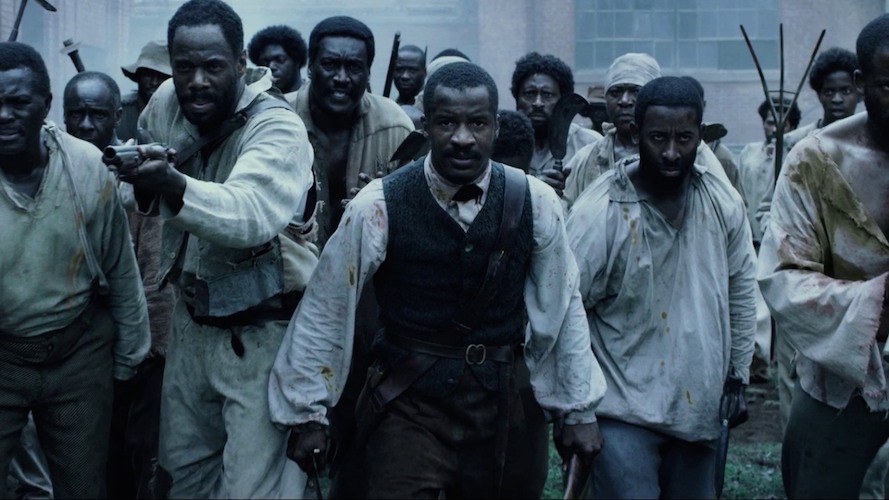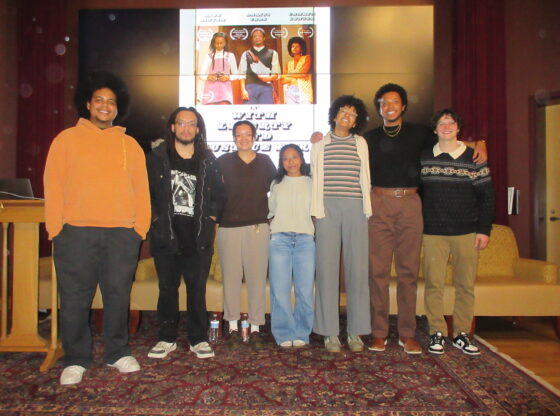Separating the artist from the art has always been a struggle that people get over easily. Pablo Picasso beat his wife. Ernest Hemingway was a racist and anti-semite. And in Hollywood we have examples like Mel Gibson as well as Woody Allen and Roman Polanski, filmmakers who have won Academy Awards even after allegations of sexual assault forced them out of public spotlight.
And so now we have Nate Parker and his directorial debut, “The Birth of a Nation”. Parker was accused and acquitted of rape during his time at Penn State in 1999. However, his accuser from said case committed suicide in 2012, creating suspicion and leading many to boycott the film altogether. This revelation came up in the midst of Fox Searchlight ramping up its awards campaign for the film, one that now seems to be a wasteful investment. Parker has lately been a part of a publicity push as the release of “The Birth of a Nation” loomed closer, but his arrogance and lack of sympathy will likely cause studios to avoid any future projects with his name attached. Which is unfortunate, as “The Birth of a Nation” is a rousing and powerful film for a first-time filmmaker, despite sometimes falling prey to narrative shortcuts and familiar plot devices.
The film opens in 1809 Virginia with a young Nat Turner beginning to learn how to read. He’s taught the Bible by his master’s wife, but he’s ultimately sent back to work in the cotton fields. Once an adult, Nat Turner (Nate Parker) still preaches to his fellow slaves, something his current owner and childhood friend Sam Turner (Armie Hammer, “The Social Network”) sees as a financial opportunity. He begins loaning Nat and his preaching skills to other slave owners who hope to alleviate unrest within their property. By traveling around to different plantations, Nat begins to witness more and more violence and injustice to his people, including his wife Cherry (Aja Naomi King, “How to Get Away with Murder”). While Nat used scripture to encourage subservience, he soon begins to use the word of God as a weapon to inspire rebellion.
The use of religion throughout the film is fascinating because it enlightens how powerful faith can be. Religion can enforce the idea of service to a master while also pushing retaliation towards your enemy and the line that Parker walks is a fine one. The topic is covered thoroughly and the parallels between the danger and power of religion is quite apparent. However, Parker’s approach doesn’t lend itself to much subtlety, with Turner even explaining the strategy to fellow slaves later in the film.
Pulling triple duty with writing, directing and starring, Parker wonderfully crafts Nat Turner’s story. Parker’s performance is intense, genuine and commanding (if it weren’t for his current publicity controversy, he’d be a front-runner in the Best Actor race). The only downside into pouring so much detail and attention to Turner is that the rest of the cast isn’t left with much character development. Hammer plays slave owner and friend Sam Turner very well despite being given a very little arc to work with. King plays Cherry with an endearing sweetness, but the character doesn’t have much to offer past being a plot device or an example of the negative effects of slavery. The same goes for Gabrielle Union’s very small role as a slave who’s raped one night. The film unfortunately continues the device of “woman is attacked which spurs man to the rescue.”
The horrors of slavery are unflinchingly portrayed, adding to the impact of the overall film. The pacing of the plot is also extremely effective, with Parker taking his time and spreading out the harsh realities before getting to the rebellion. Unfortunately, the final act seems a little rushed and therefore a bit too narratively convenient. As an independent film that was made on a budget, there sadly wasn’t large enough funds to capture the necessary scale and development of Turner’s movement. Even the final showdown between Turner’s slave rebellion and slave hunters came off as staged in a place where it was obvious that this was all the production could afford.
While it was great to see the mutation of religion throughout the film, we don’t see enough balance between how it was utilized. Most of the film shows slavery at its worst with slaves being terribly treated, but not enough of the film offers the needed payoff and triumph of Turner’s uprising. In basic terms, I wanted to see more slaveowners die.
“The Birth of a Nation” is incredibly important for today. It not only reminds us of the shameful history we have with the treatment of African Americans, but also challenges us to think how far (or, more appropriately, how little) race relations have come in this country. Despite minor flaws, the emotional gut-punch that the film offers and the conversation it creates is a lasting one that more people should see and experience.











